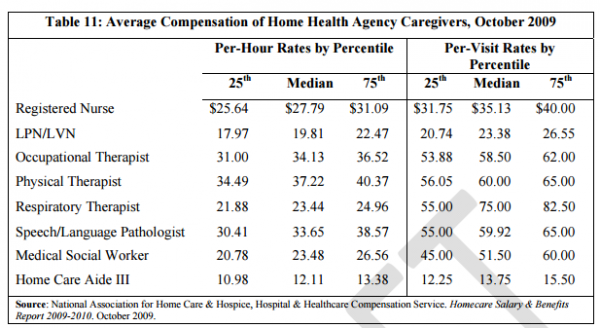But cases are speeding up in the U.S., which has become the worldwide center for the infection, with roughly 6 million confirmed cases and 183,000 deaths or the equivalent of one in five COVID-19 deaths worldwide. "It's really discouraging to need to divert so much political energy towards what ought to be a no-brainer." One strength of the Canadian system to shine through during the pandemic is that everybody is insured, Martin stated.
Health centers work with a single insurer, she stated, which implies care is better collaborated throughout organizations. "Anybody that requires COVID care is going to get it," she said. Dr. Ashish Jha, who has actually directed the Harvard Global Health Institute and now acts as the dean of the Brown University School of Public Health, has a somewhat various take.
and Canada present "a reflection that has absolutely nothing to do with the underlying health system" however rather shows leaders and their political will and top priorities. While America's healthcare system is amongst the world's best in terms of innovation and technology, Jha said that U.S. political leaders have actually shown themselves to be reluctant to compromise short-term discomfort of lockdowns and job losses for a long-term public health crisis and financial instability.
They also didn't ramp up testing rapidly enough to successfully keep track of when and where outbreaks would take place and consistently weakened the public health neighborhood in its efforts to successfully react to the virus. He stated leaders in the U.S. have actually not offered a clear constant message or definitive leadership to unify the nation and get everybody relocating the same direction.
" It's really discouraging to need to divert a lot political energy towards what needs to be a no-brainer," Jha said. "This is the time when everybody who requires to be evaluated, is tested everybody who needs to be taken care of is looked after." Which begins with uniform access to effective health care, he stated.

The 8-Minute Rule for How Does Culture Affect Health Care

entered lockdown under coronavirus, Sen. Bernie Sanders revealed on April 8 that he had actually ended on his presidential run. A week later on he backed previous Vice President Joe Biden. After contests in 28 states and two territories, his path to winning the Democratic nomination had narrowed substantially regardless of an early edge.
His campaign has actually proposed providing "every American a brand-new option, a public health choice like Medicare" to make insurance coverage more inexpensive. As Potter views COVID-19 rage in the U.S., the previous health care communications executive said Americans reside in "worry of having big out-of-pocket bills without assurance that we'll have our expenditures covered." With the number of uninsured Americans nearly double what they were prior to novel coronavirus, according to some quotes, Potter stated that is not sustainable.
action to the coronavirus pandemic was below par, if not the worst, in the world. This pandemic could bring the country to a snapping point, Potter stated, pushing more Americans to call for a health care system that goes beyond the reforms of the Affordable Care Act, which the Trump administration has actually repeatedly attacked and attempted to dismantle.
" You will see this project resurface to attempt to scare people far from modification," he stated. "It takes place every time there is a substantial push to change the healthcare system. The industry wants to protect the status quo." There's no perfect health care system, and the Canadian system is not without flaws, Flood said.
In June 2019, New Democrat Celebration Leader Jagmeet Singh proposed expanding Canada's pharmaceutical drug protection. The ultimate objective of these modifications that have been debated in varying degrees for many years is to encompass dental, vision, hearing, psychological health and long-lasting care to create "a head to toe health care system." And yet it is natural for Canadians to compare systems with their neighbors and just "feel grateful for what they have (what countries have universal health care)." She states that sort of complacency has insulated Canada's system from more improvements that produce generally better results for lower expenses, as in the United Kingdom, the Netherlands or Switzerland.
Not known Factual Statements About What Is Fsa Health Care
Healthcare reform has been an ongoing argument in the U.S. for years. 2 terms that are frequently utilized in the conversation are universal health care protection and a single-payer system. They're not the same thing, in spite of the truth that people often utilize them interchangeably. a health care professional is caring for a patient who is taking zolpidem. While single-payer systems normally consist of universal protection, many nations have actually attained universal protection without using a single-payer system.
Universal protection describes a healthcare system where every individual has health protection. According to the U.S. Census Bureau, there were 28.1 million Americans without medical insurance in 2016, a sharp decline from the 46.6 million who had been uninsured prior to the implementation of the Affordable Care Act (ACA).
Thus, Canada has universal healthcare protection, while the United States does not. It is necessary to keep in mind, nevertheless, that the 28.5 million uninsured in the U.S. consists of a substantial number of undocumented immigrants. Canada's government-run system does not provide protection to undocumented immigrants. On the other hand, asingle-payer system is one in which there is one entityusually the government accountable for paying health care claims.
So although it's a kind of government-funded health coverage, the financing originates from 2 sources instead of one. People who are covered under employer-sponsored health insurance or private market health insurance in the U.S. (including ACA-compliant plans) are not part of a single-payer system, and their health insurance coverage is not government-run.
There are currently a minimum of 16 nations that use some kind of a single-payer system, including Canada, Norway, Japan, Spain, the United Kingdom, Portugal, Sweden, Brunei, and Iceland. Most of the times, universal protection and a single-payer http://ricardomgpq840.jigsy.com/entries/general/getting-the-what-is-single-payer-universal-health-care-to-work system go together, due to the fact that a nation's federal government is the most likely candidate to administer and pay for a health care system covering countless individuals.
Facts About Who Led The Reform Efforts For Mental Health Care In The United States? Revealed
However, it is extremely possible to have universal coverage without having a complete single-payer system, and many countries around the globe have actually done so. Some countries operate a in which the federal government offers standard health care with secondary coverage offered for those can afford a higher requirement of care. Denmark, France, Australia, Ireland, Hong Kong, Singapore, and Israel each have two-tier systems.
Mingled medication is another phrase that is often pointed out in discussions about universal protection, however this model in fact takes the single-payer system one step even more - when does senate vote on health care bill. In a socialized medicine system, the government not only spends for health care but operates the healthcare facilities and employs the medical staff. In the United States, the Veterans Administration (VA) is an example of interacted socially medication.
But in Canada, which likewise has a single-payer system with universal coverage, the health centers are privately run and doctors are not employed by the federal government. they simply bill the government for the services they provide. The main barrier to any socialized medicine system is the federal government's ability to efficiently fund, handle, and upgrade its requirements, equipment, and practices to offer optimum health care.